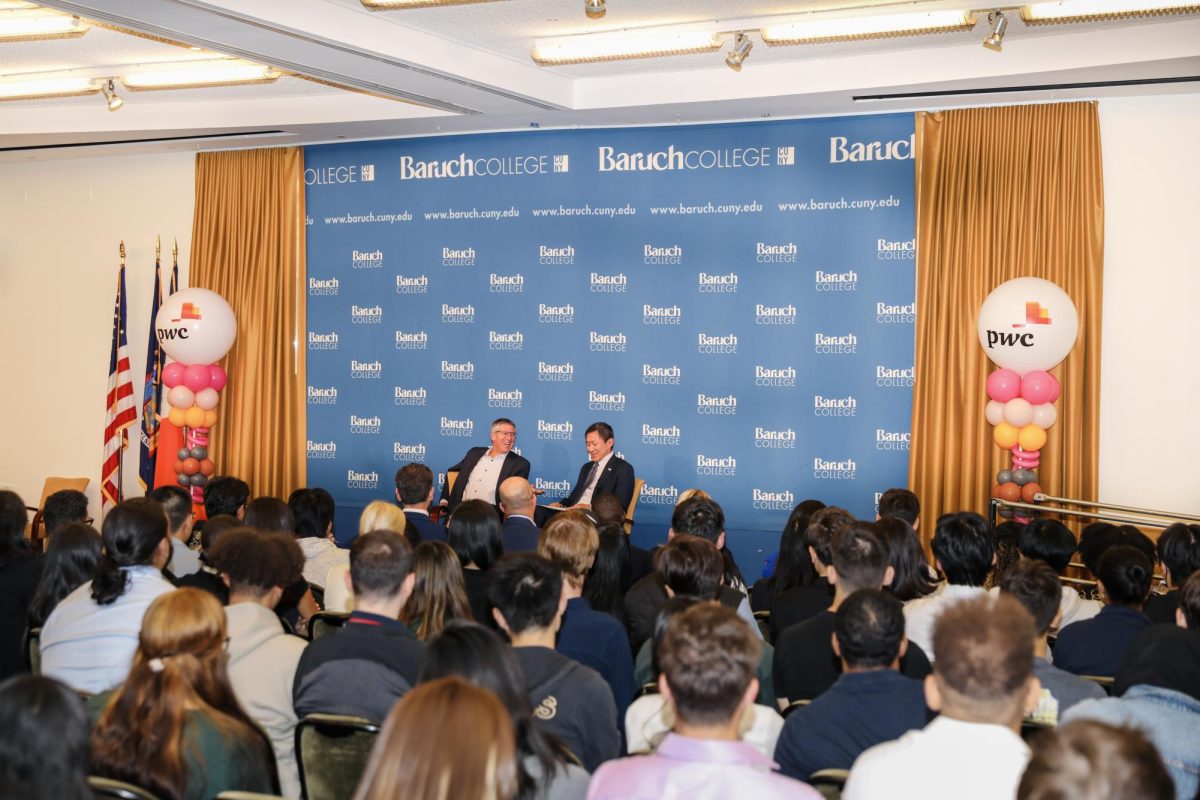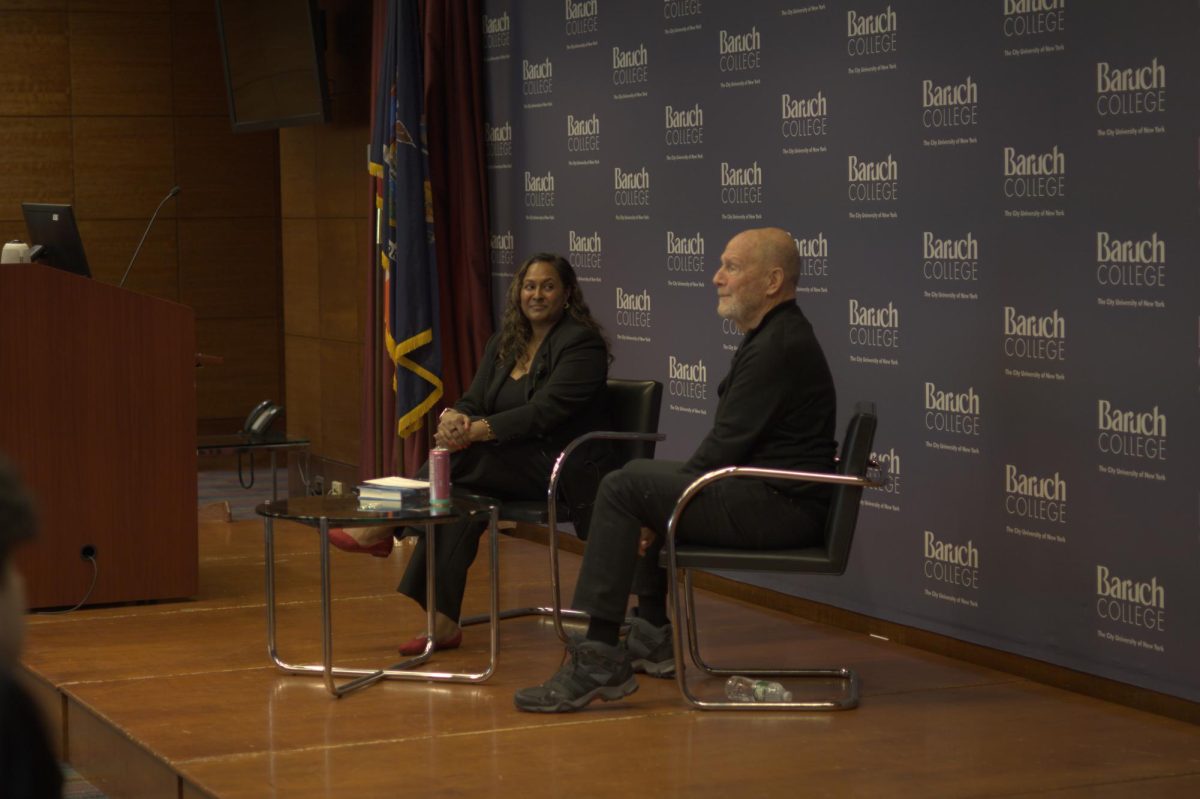In collaboration with the New York Jobs CEO Council, Baruch College invited PricewaterhouseCoopers Global Chair Bob Moritz to participate in the latest installment of the nonprofit’s CEO speaker series on Sept. 20.
The Ticker previously reported that the New York Jobs CEO Council is a nonprofit organization comprised of over 25 CEOs that aims to provide access to high-potential jobs for 100,000 low-income New Yorkers, including 25,000 from the City University of New York.
PwC is a global professional services firm whose mission is to “build trust in society and solve important problems” by helping intricate systems function, leading to sustained outcomes for society.
The Ticker conducted a sit-down interview with Baruch President S. David Wu and Moritz on Sept. 20 where Moritz explained that PwC got involved with the jobs council when it tried to assess skill levels, pointing workers in the right direction to answer “how do you upscale and rescale for different jobs?” Moritz said it led the company to partner with lots of institutions in educating and developing skills within people.
“So we ended up working with lots of institutions, in terms of how do you actually deal with —then deal with — upskilling people, attacking it from the formal education and the informal education that they get on the job and then dealing with the supply side and the demand of jobs,” Moritz told The Ticker. “So we do that in New York City with Kiersten [CEO of the New York Jobs CEO Council] and the rest in terms of how we actually get that awareness up.”
Additionally, Moritz detailed that the jobs council is convening the business community, the institutions in education and “the humanity within all of us” through these visitations because it allows administrations to rethink formal education and make it more applicable to real life, creating “a degree of inspiration and personal connection to give the students more ambition.”
Wu agreed with Moritz’s assessment of the job’s council, stating that Baruch continues to strengthen its relationships with its top 35 employers year after year and that “it’s all about getting that exposure, that connection early on and also expanding on the base that we already have and to other companies and other opportunities.”
Wu asked Moritz during a fireside chat about his take on the current artificial intelligence trend. He concluded that AI would not replace us but provide us with more job opportunities in new domains, such as ensuring AI does not fall into the hands of bad actors.
“I would hope we don’t get scared by this perception that it’s all going to replace all the jobs that are out there,” Moritz explained to Wu. “Anybody out there saying that, the only thing I would say to them is ‘You’re wrong.’ The founder of OpenAI even said, ‘Oh, by the way, maybe we should get auditors to check the code, to check the data to check the outputs’ and that’s going to be the next evolution of where auditors and accounting and finance majors and other things like that, because it’s the same kind of aspect running control systems and processes humanity checking.”
To close the fireside chat, Wu asked Moritz what qualities PwC seeks in candidates. Moritz responded by saying he looks for individuals who possess the IQ, EQ and social skills needed for the job and can illustrate their potential for leadership while hearing stories of how they utilized their experiences to continue learning and creating value for others.
Following the fireside chat, Seth Drucker, a partner at PwC, mediated a panel discussion with Moritz and Baruch senior Brittany Cardona and Zicklin graduate Oumar Koulibaly to share their experiences working at PwC alongside giving students career advice.
Drucker ended the panel by asking Moritz what he thinks about his position at PwC today, given the changing business landscape and where he sees it going. Moritz explained that now there is more interaction and that everyone is more involved compared to years ago.
Additionally, he mentioned how he believes AI will be the next evolution of humanity, where demand for professional services will be endless and people will be looking for advice on traversing this new evolution.
“There’s nothing but upsides in terms of the personal experiences I think people will have as a result of that, and the upside potential for an organization like ours and the profession that we’re in,” Moritz said in his closing remarks. “And I think it’s really exciting to be sitting here in New York because of the size and scale of the organizations that you actually interact with.”








